Professional Courses
Industry-relevant training in Business, Technology, and Design
Categories
Interactive Games
Fun games to boost memory, math, typing, and English skills
Typing
Memory
Math
English Adventures
Knowledge
What is the IB? Full Form, History and Overview

The International Baccalaureate (IB) is a globally recognized education board, known for its rigorous academic standards and its holistic approach to learning.
With a presence in over 150 countries, the IB aims to develop well-rounded individuals by focusing on critical thinking, intercultural understanding, and active global citizenship.
It offers a comprehensive, global, knowledge-oriented curriculum that challenges students intellectually, emotionally, and ethically, making it one of the most respected educational frameworks worldwide.
Full Form of IB

IB stands for the International Baccalaureate. It is a non-profit educational foundation dedicated to providing high-quality, globally relevant education.
The International Baccalaureate was founded in 1968 in Geneva, Switzerland. Its original goal was to create a better and more peaceful world through an education that nurtures open-minded, knowledgeable, and compassionate young people.
The board operates four distinct educational programmes designed for students aged 3 to 19, each tailored to specific stages of a child’s academic and personal development.
Global Reach and Recognition
As of 2025, the International Baccalaureate has established a truly global presence.
- Over 5,800 IB schools operate across 160 countries, offering a consistent and high-quality educational experience worldwide.
- More than 220 IB World Schools are now located in India, spread across major cities like Delhi, Mumbai, Bangalore, Hyderabad, and Pune.
The IB curriculum is widely respected and recognized by top universities around the globe. Leading institutions in countries like the USA, UK, Canada, and Australia value the IB’s rigorous academic framework.
In India, many prominent universities, including the University of Delhi and others recognized by the Association of Indian Universities (AIU), accept the IB Diploma as equivalent to the Class 12 qualification.
IB Curriculum Structure
The IB provides four distinct educational programmes for students aged 3 to 19, ensuring a continuous and progressive learning path.
- PYP (Primary Years Programme): For ages 3–12 (typically Nursery to Class 5).
- MYP (Middle Years Programme): For ages 11–16 (typically Class 6 to 10).
- DP (Diploma Programme): For ages 16–19 (typically Class 11 to 12).
- CP (Career-related Programme): For ages 16–19, focusing on a vocational stream.
These programmes emphasize interdisciplinary learning, critical thinking, and a strong sense of global awareness.
Key Aspects of IB Education
The IB's educational philosophy is built on several core principles that set it apart.
- Inquiry-based learning: Students are encouraged to ask questions, explore topics independently, and conduct their own research, making them active participants in their learning.
- Conceptual understanding: The focus is on connecting big ideas and understanding core concepts rather than just memorizing isolated facts and figures.
- Global citizenship: There is a strong emphasis on developing intercultural understanding, a sense of ethics, and an awareness of global issues like sustainability.
- Diverse assessment methods: Evaluation is not just based on final exams. It includes a variety of methods such as projects, essays, lab work, and oral presentations.
- Personal growth: The curriculum prioritizes creativity, physical activity, community service, and personal reflection to ensure the holistic development of each student.
IB Diploma Programme (DP) Highlights
The IB Diploma Programme (DP) is the most well-known of the IB's offerings and is widely accepted for university admissions across the world.
Six Subject Groups Students must choose one subject from each of the following six academic groups, ensuring a breadth of knowledge: 1. Studies in Language & Literature 2. Language Acquisition 3. Individuals & Societies 4. Sciences 5. Mathematics 6. The Arts (or an additional subject from groups 1-4)
Three Core Requirements In addition to their six subjects, all DP students must complete three core components that are central to the IB philosophy: - TOK (Theory of Knowledge): A unique course where students reflect on the nature of knowledge itself and how we know what we claim to know. - EE (Extended Essay): A 4,000-word independent research paper on a topic of the student's choice, which prepares them for university-level research. - CAS (Creativity, Activity, Service): A range of activities completed alongside their academic studies to promote personal and interpersonal development.
Grading & Assessment
The IB's assessment system is designed to be comprehensive and fair.
- Each of the six subjects is graded on a scale of 1 to 7, with 7 being the highest score possible.
- The Theory of Knowledge (TOK) and Extended Essay (EE) components can contribute up to 3 bonus points to the total score.
- The maximum possible score for the IB Diploma is 45 points.
- A minimum score of 24 points is generally required to be awarded the diploma, provided certain other conditions are met.
Assessments are a mix of internal and external tasks. This includes Internal Assessments (IAs) like projects and lab work graded by teachers, and External Exams, which are final written exams graded by external IB examiners.
How Does IB Compare to CBSE and ICSE?
Choosing an education board is a significant decision. Here is how the IB compares to the two other major national boards in India.
International Baccalaureate (IB) - Approach: Focuses on inquiry-based, holistic learning with a global perspective. - Scope: International, with a curriculum designed for global recognition. - Assessment: A balanced mix of internal projects and external final exams.
CBSE (Central Board of Secondary Education) - Approach: A structured, content-focused curriculum designed to prepare students for national competitive exams like JEE and NEET. - Scope: National, providing uniformity across India. - Assessment: Primarily based on final external board examinations.
ICSE / ISC - Approach: Emphasizes a detailed study of a wide range of subjects with a strong focus on the English language. - Scope: National, primarily followed by private schools in India. - Assessment: A good balance between external exams and internal project work.
Advantages of the IB Curriculum
- International Recognition: The IB Diploma is a well-respected qualification for university admission in over 150 countries.
- Holistic Development: The curriculum ensures a balance between academic rigor and personal growth through components like CAS.
- Prepares for University: It emphasizes essential university-level skills such as academic writing, independent research, and time management.
- International Mindedness: The curriculum is designed to instill empathy, ethical understanding, and global awareness in students.
- Multilingual Focus: Students are required to study at least two languages, which enhances their communication skills and cultural understanding.
Is the IB Board Right for You?
The International Baccalaureate is more than just an examination board; it is an educational philosophy rooted in developing global competence, balanced personal growth, and a lifelong passion for learning.
It is an ideal choice for students who: - Want a globally recognized academic experience. - Value in-depth conceptual learning over rote memorization. - Are planning to apply to universities in different countries. - Seek a balance between their academic studies, creativity, and community service.
Ultimately, an IB education aims to shape not just successful students but also responsible, ethical, and well-informed global citizens.
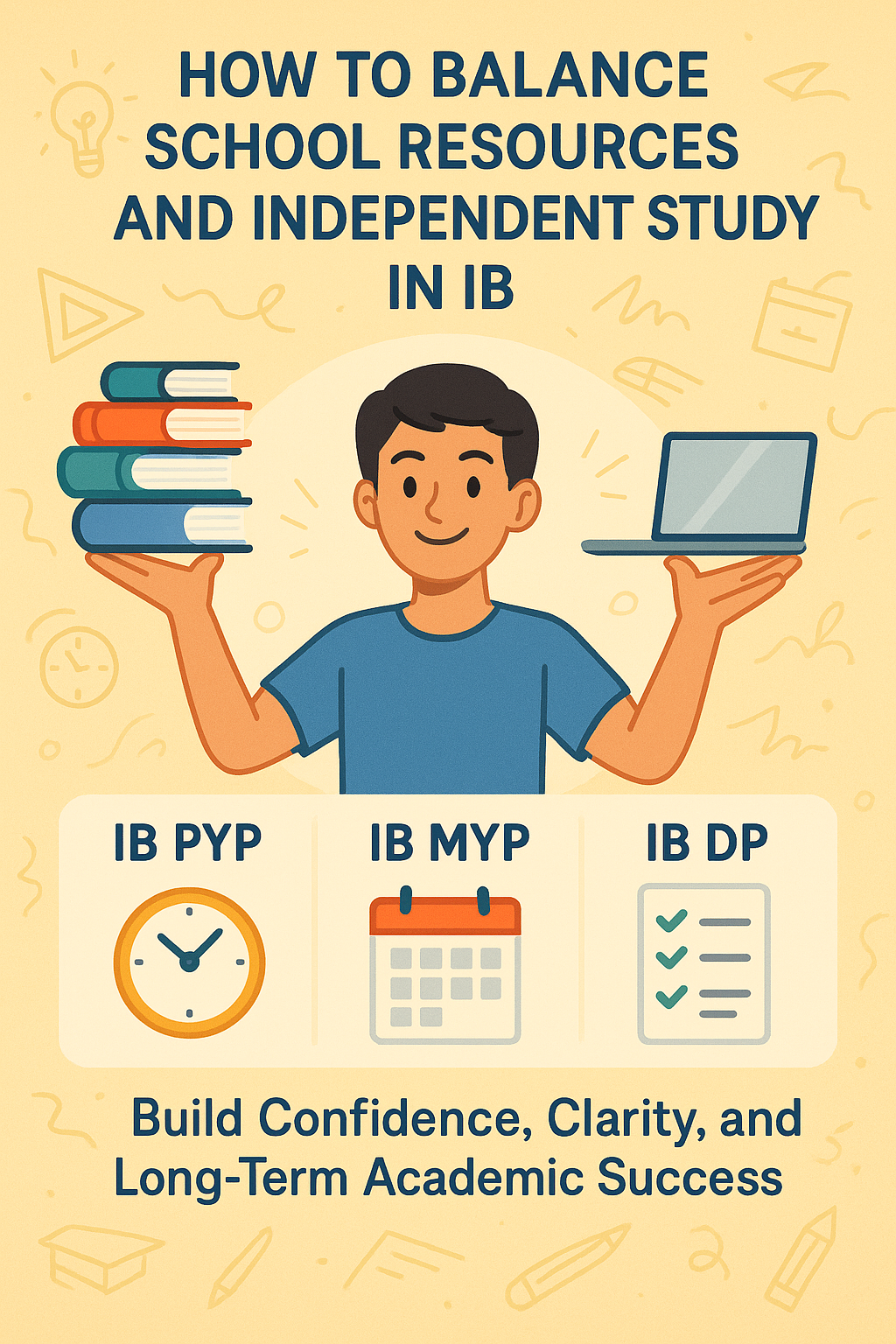
Learn how IB students can balance school resources and independent study across IB PYP, MYP, and DP to build...
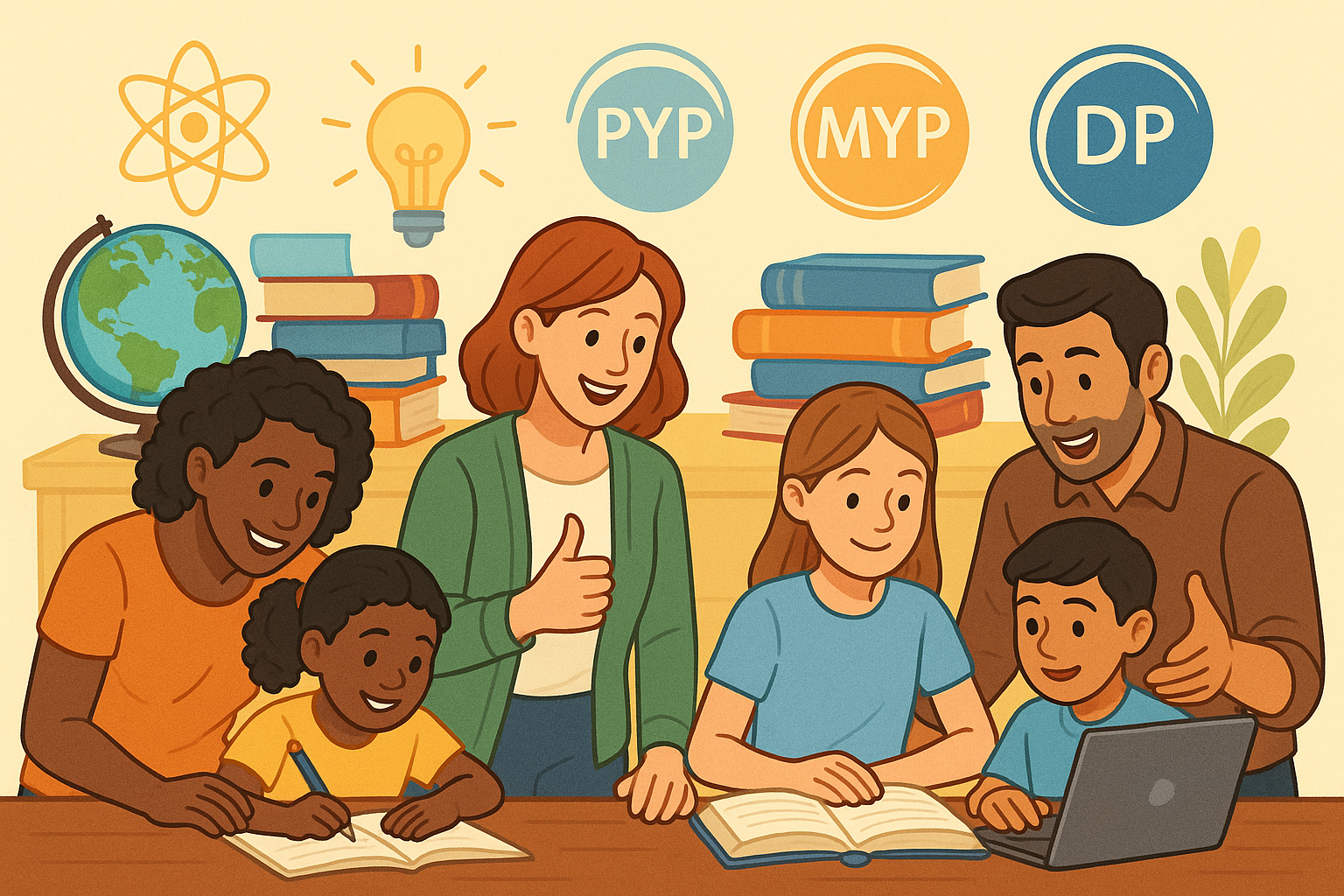
Learn how parents can identify quality academic support for IB learners that aligns with IB PYP, MYP, and DP values...
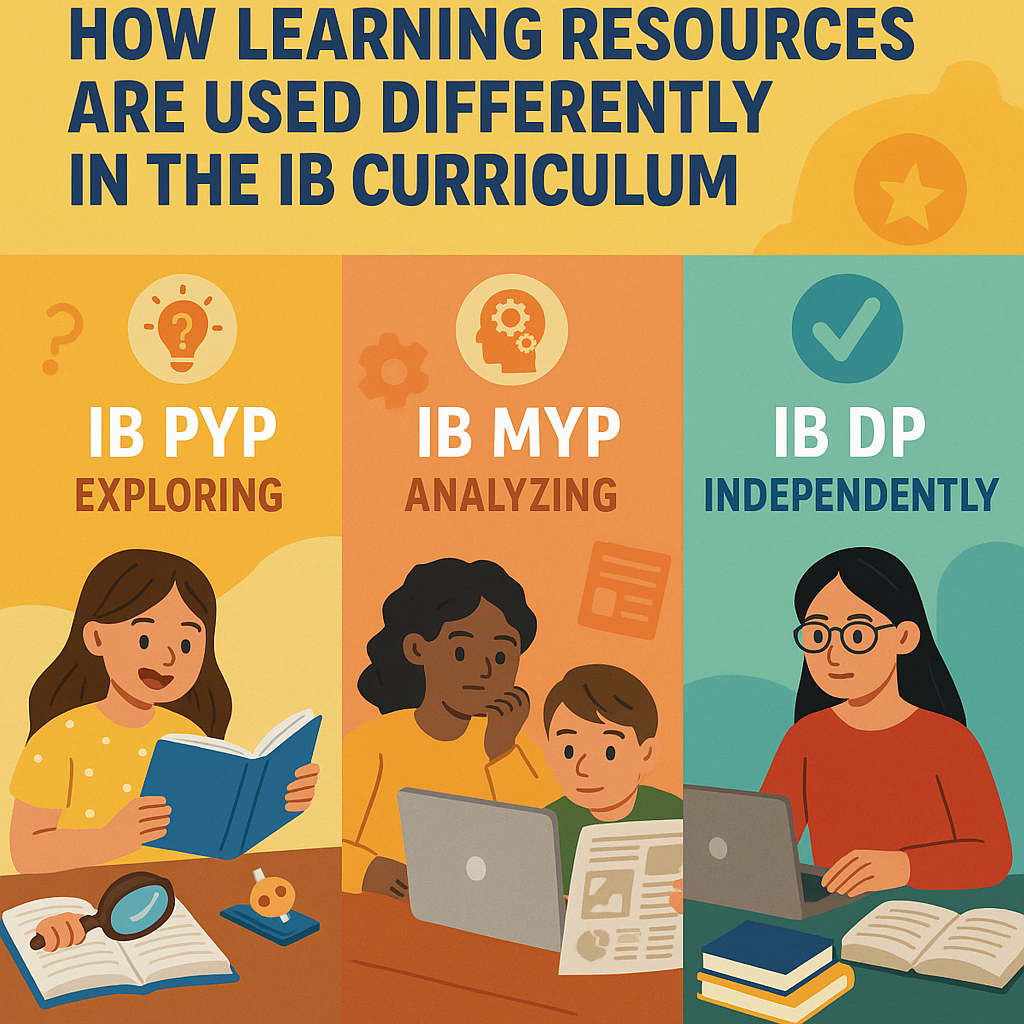
Discover how learning resources are used differently in the IB curriculum and how IB PYP, MYP, and DP students...
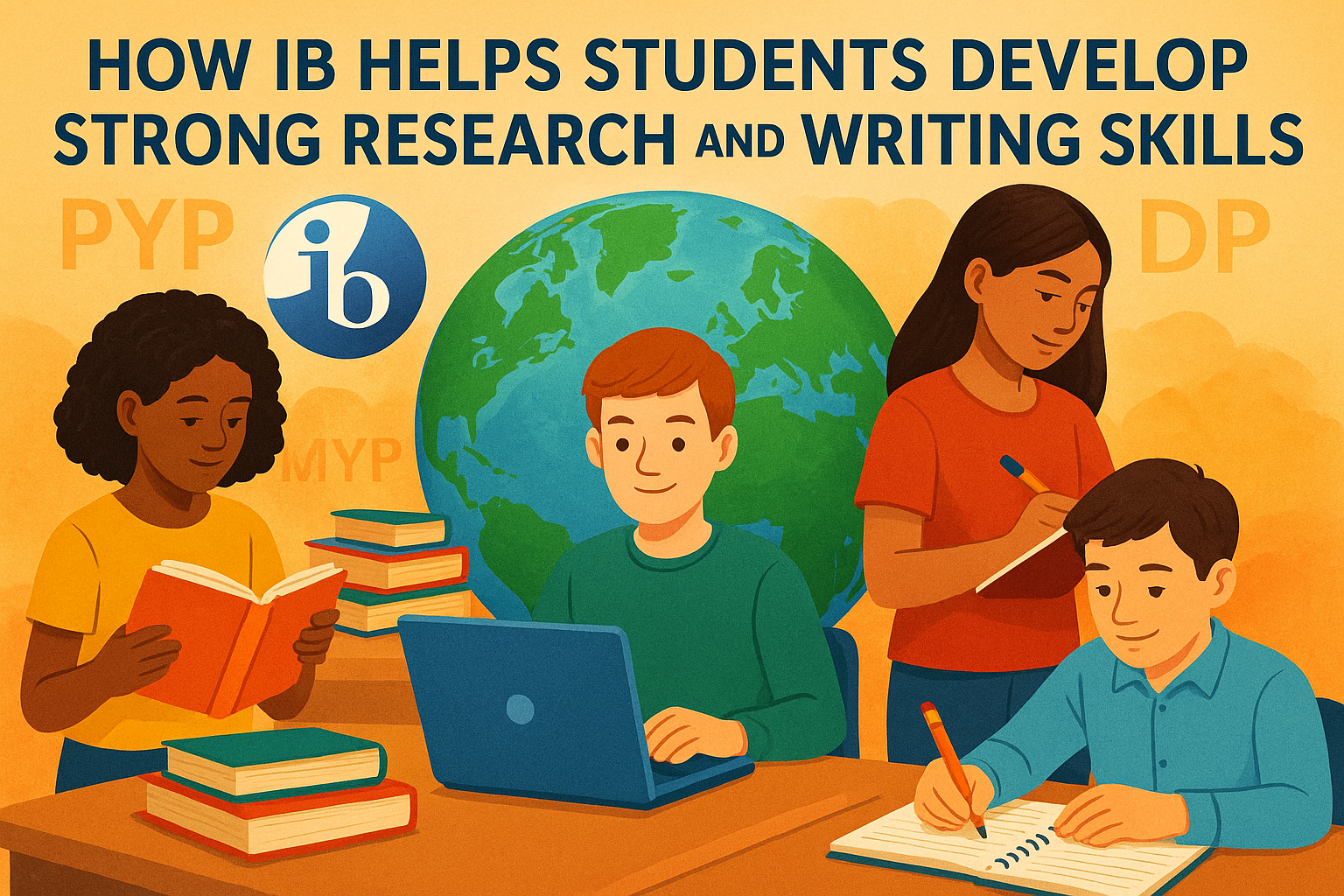
Learn how the IB curriculum helps students develop strong research and writing skills across IB PYP, MYP, and DP,...
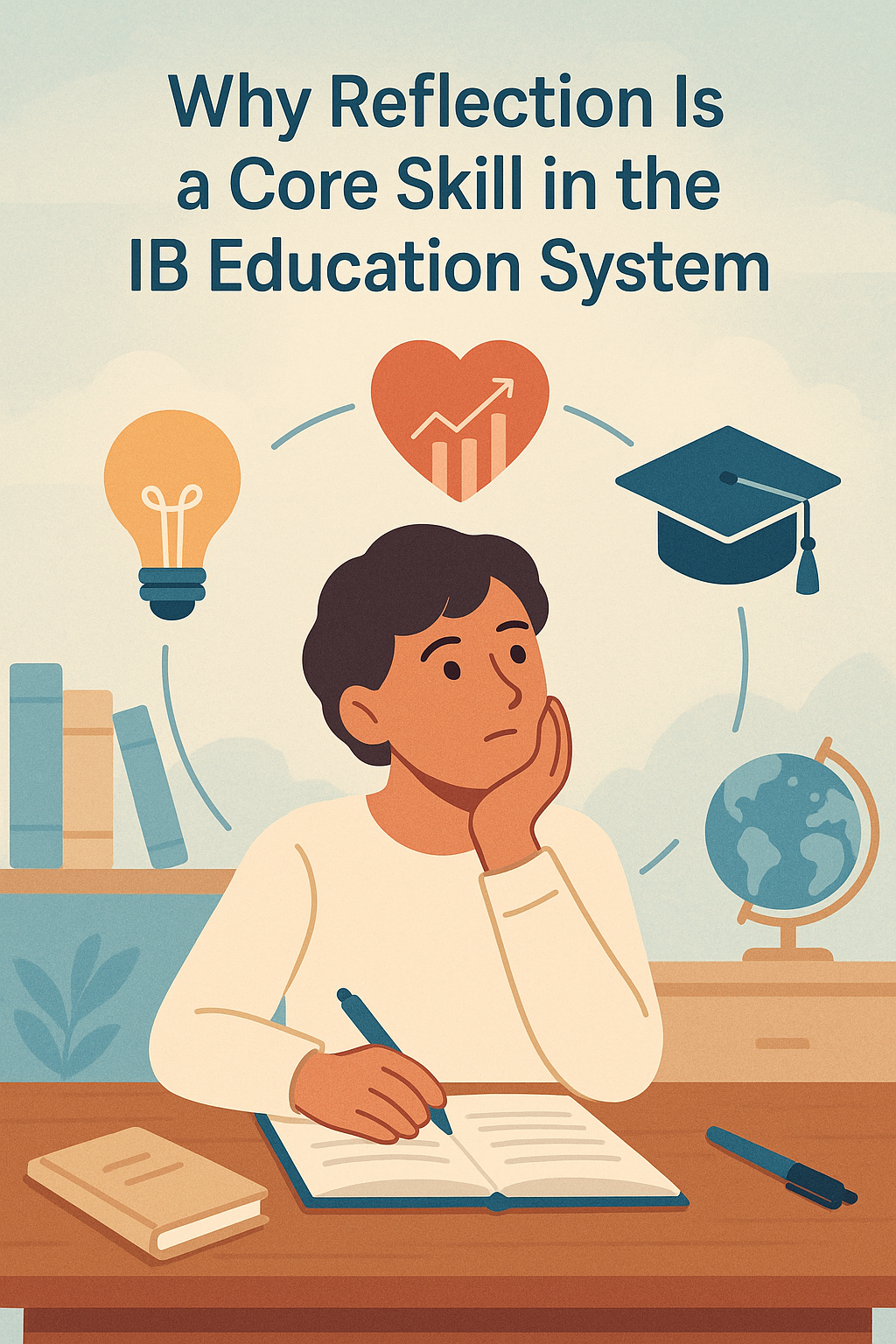
Discover why reflection is a core skill in the IB education system and how it supports independent thinking,...
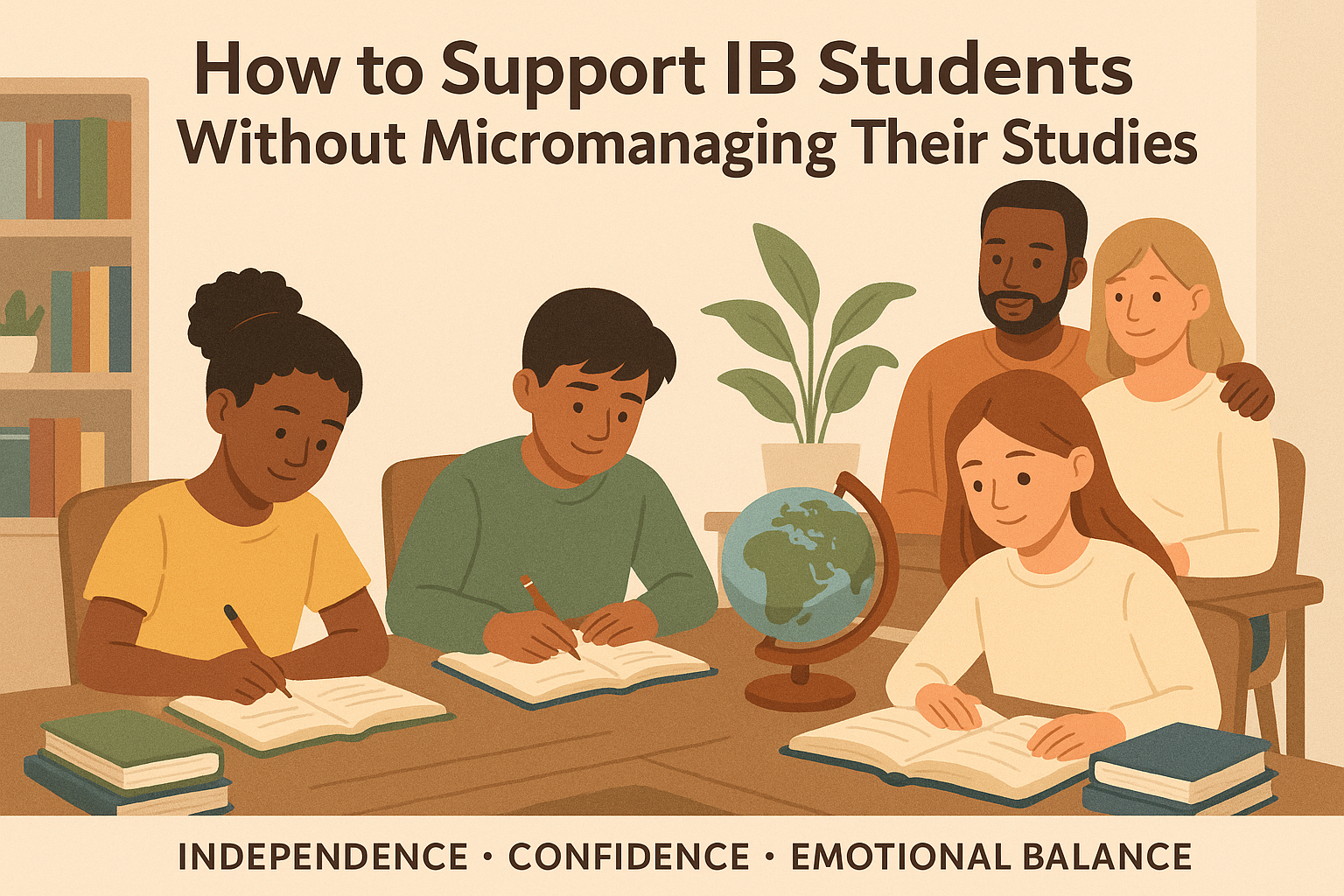
Learn how parents can support IB students across IB PYP, MYP, and DP without micromanaging, while building...
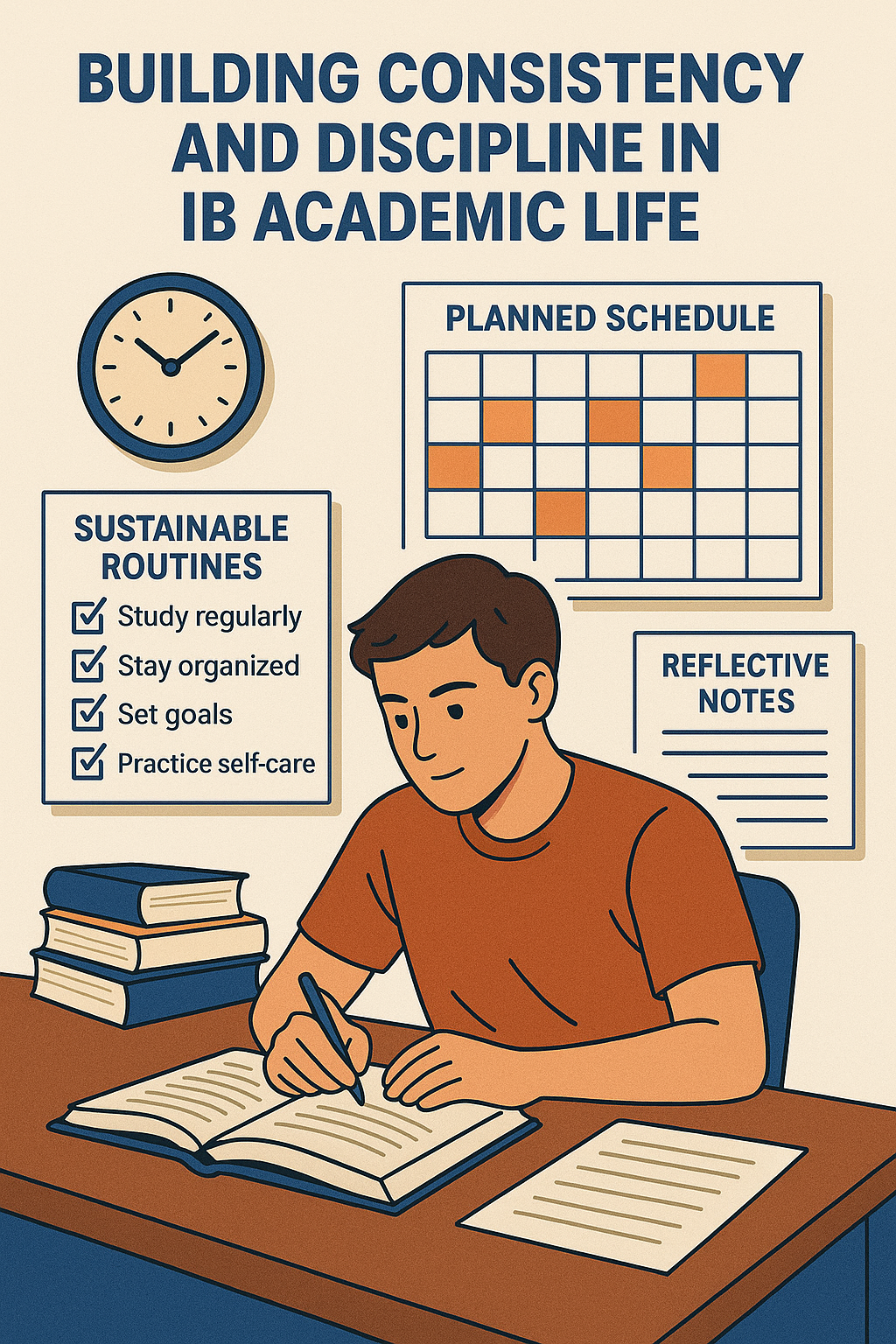
Learn how IB students can build consistency and discipline through sustainable routines, reflective habits, and...
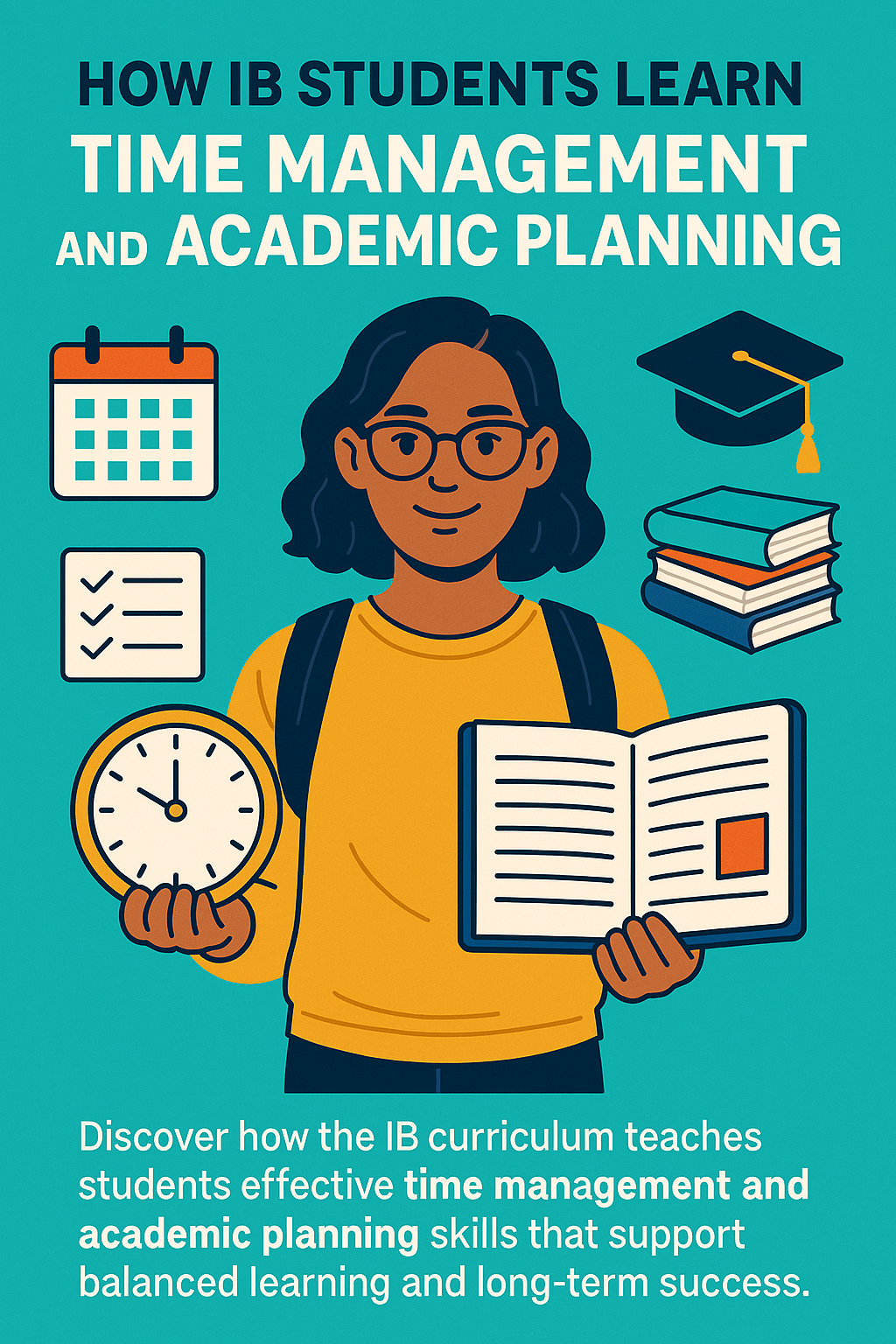
Discover how the IB curriculum teaches students effective time management and academic planning skills that support...

Learn how IB students can avoid burnout while managing coursework by building balanced routines, aligning study...
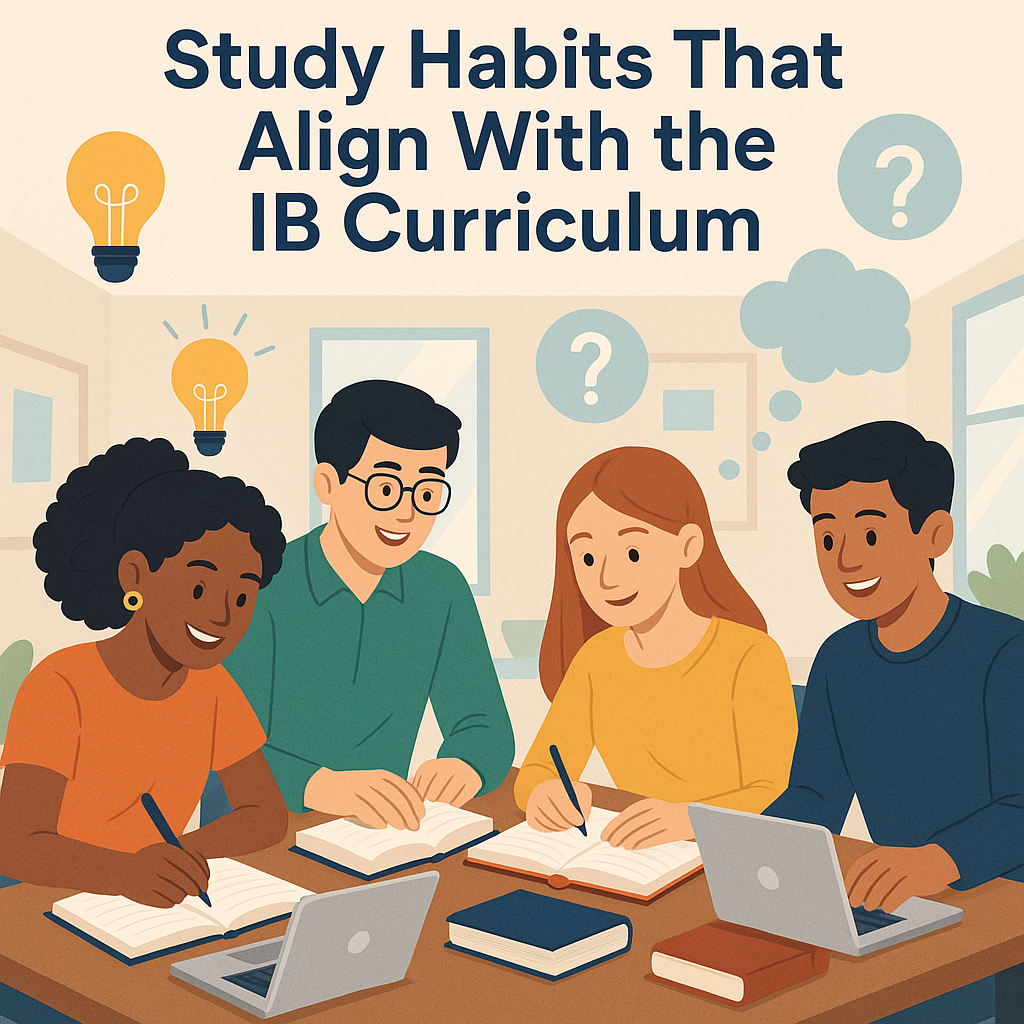
Discover study habits that align with the IB curriculum and help students succeed through inquiry-based learning,...
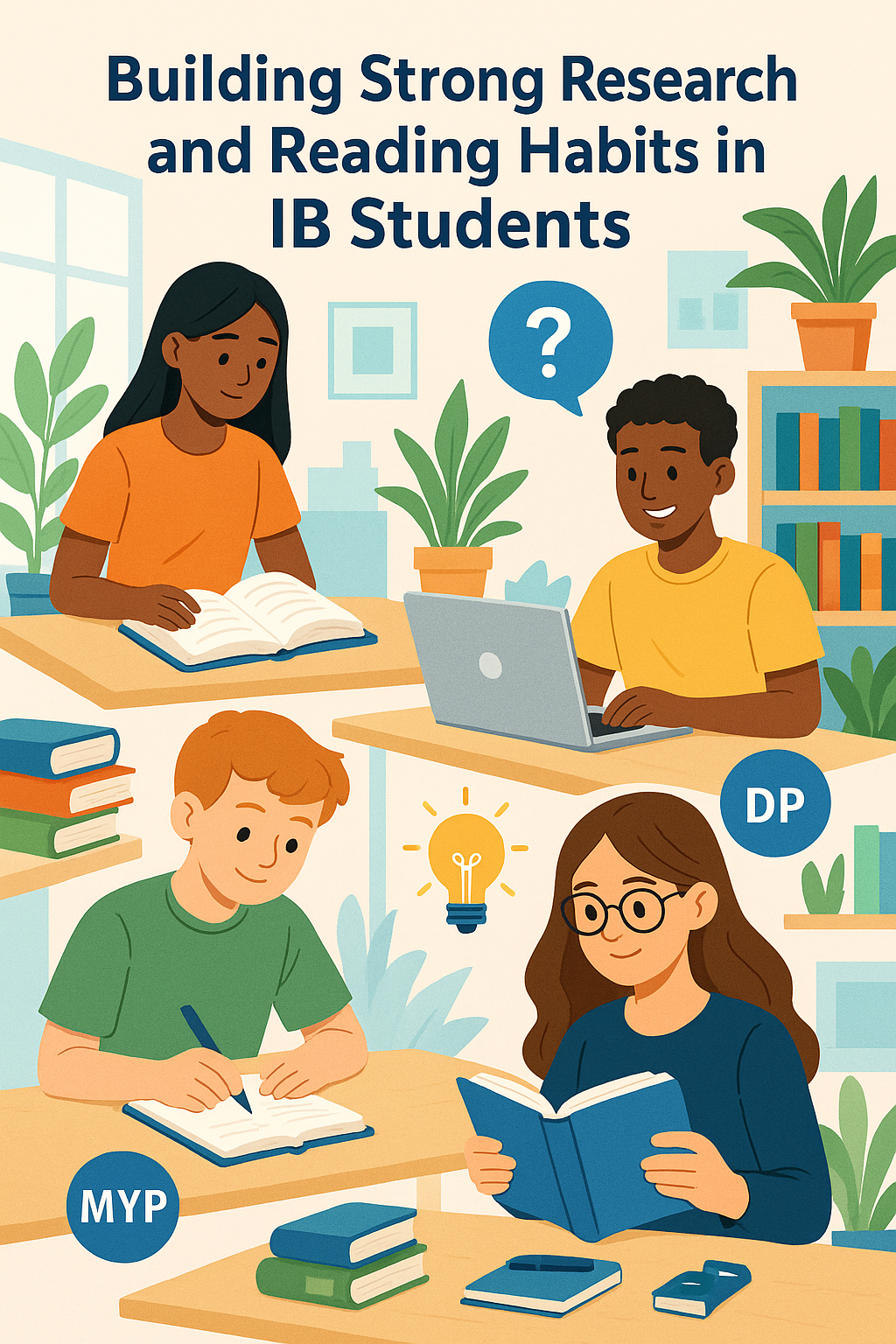
Learn how the IB curriculum builds strong research and reading habits through inquiry-based learning, reflection,...
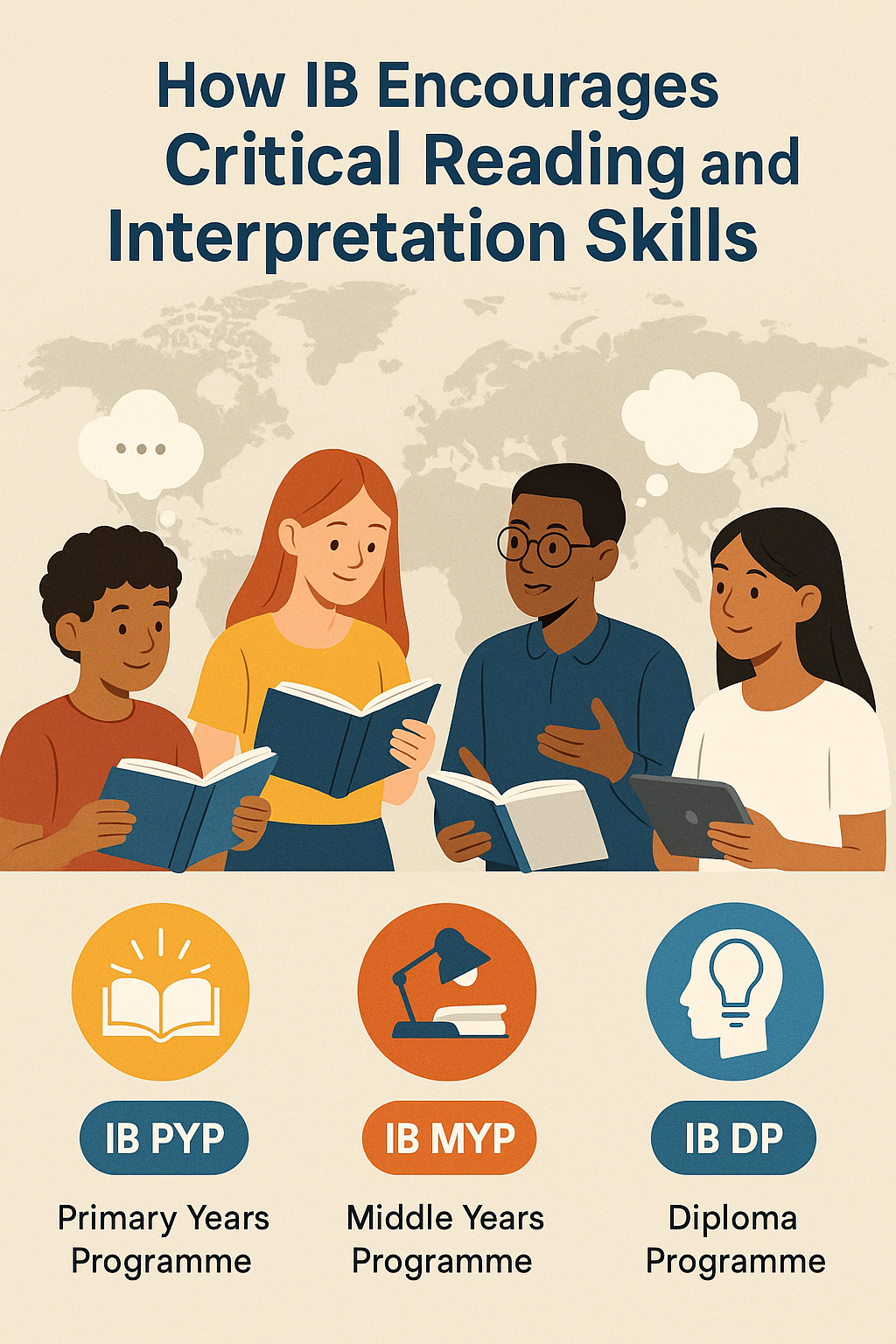
Discover how the IB syllabus builds strong critical reading and interpretation skills through inquiry-based...
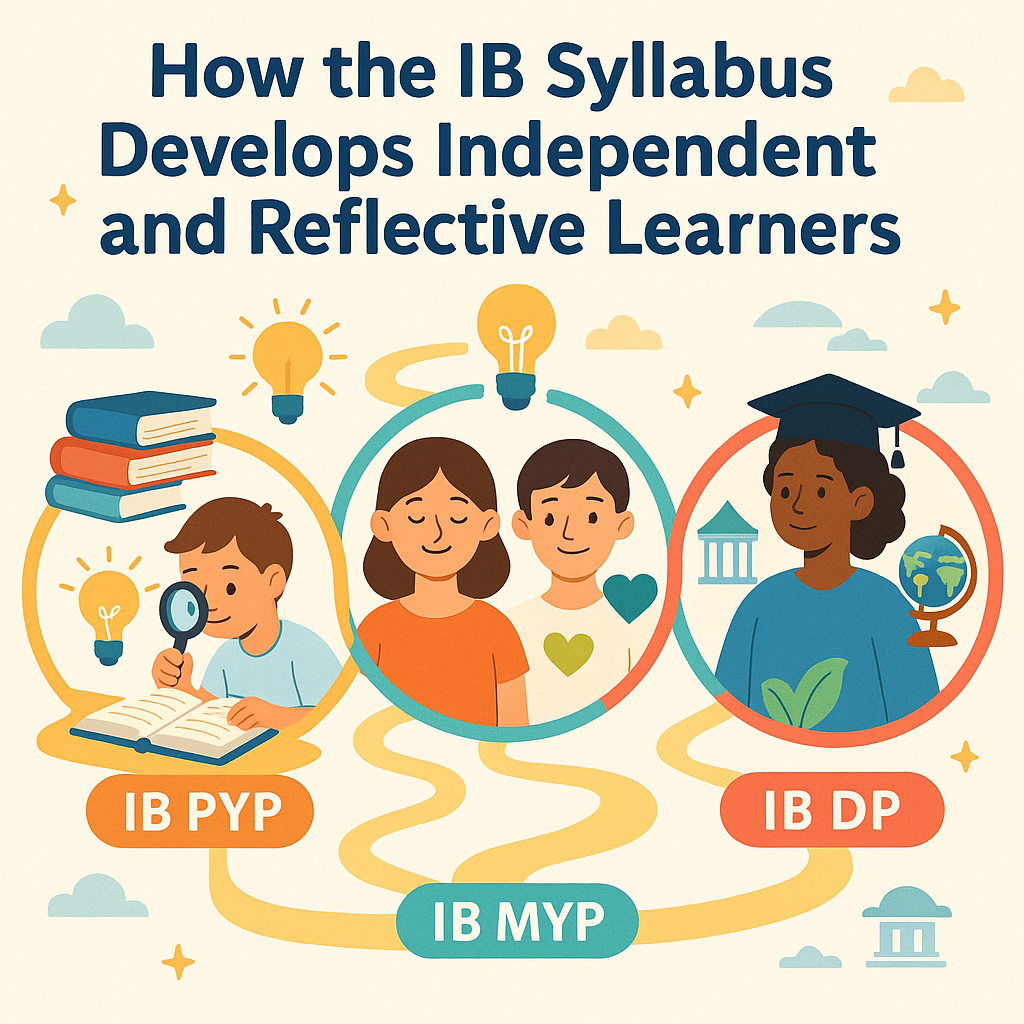
Discover how the IB syllabus builds independent and reflective learners through inquiry-based learning, emotional...
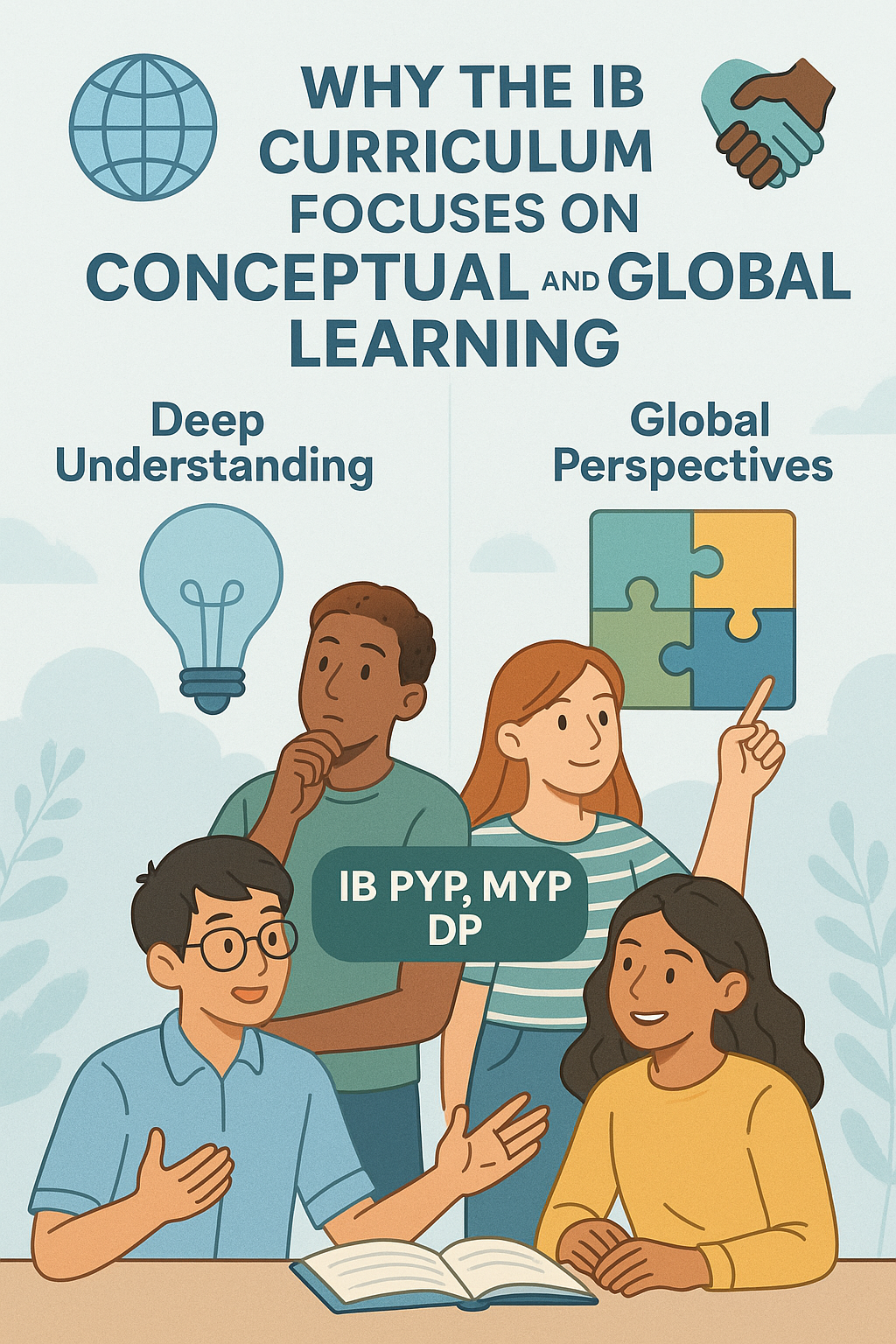
Learn why the IB curriculum focuses on conceptual and global learning, how IB PYP, MYP, and DP develop deep...
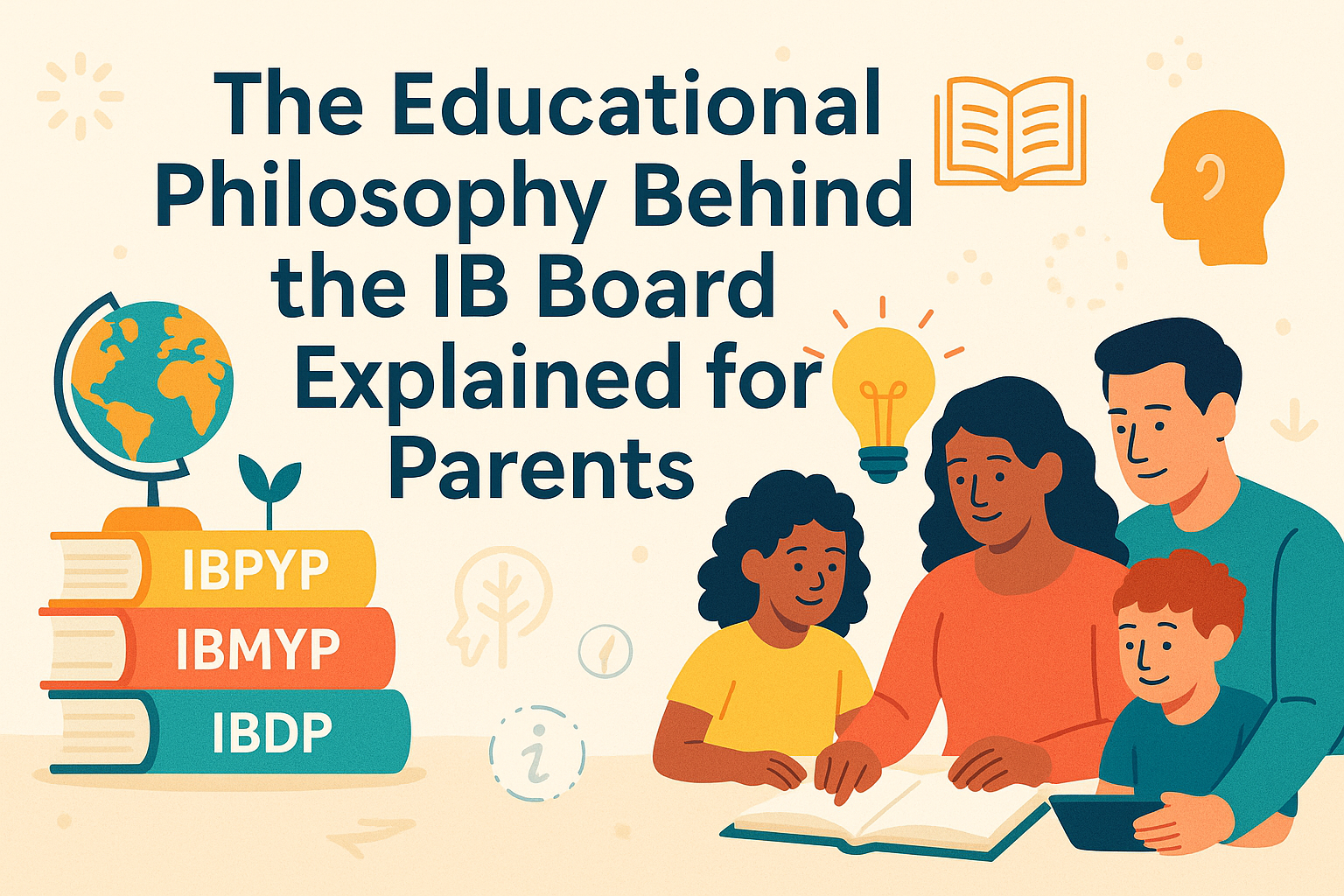
Understand the educational philosophy behind the IB board, including IB PYP, MYP, and DP, and learn how IB learning...
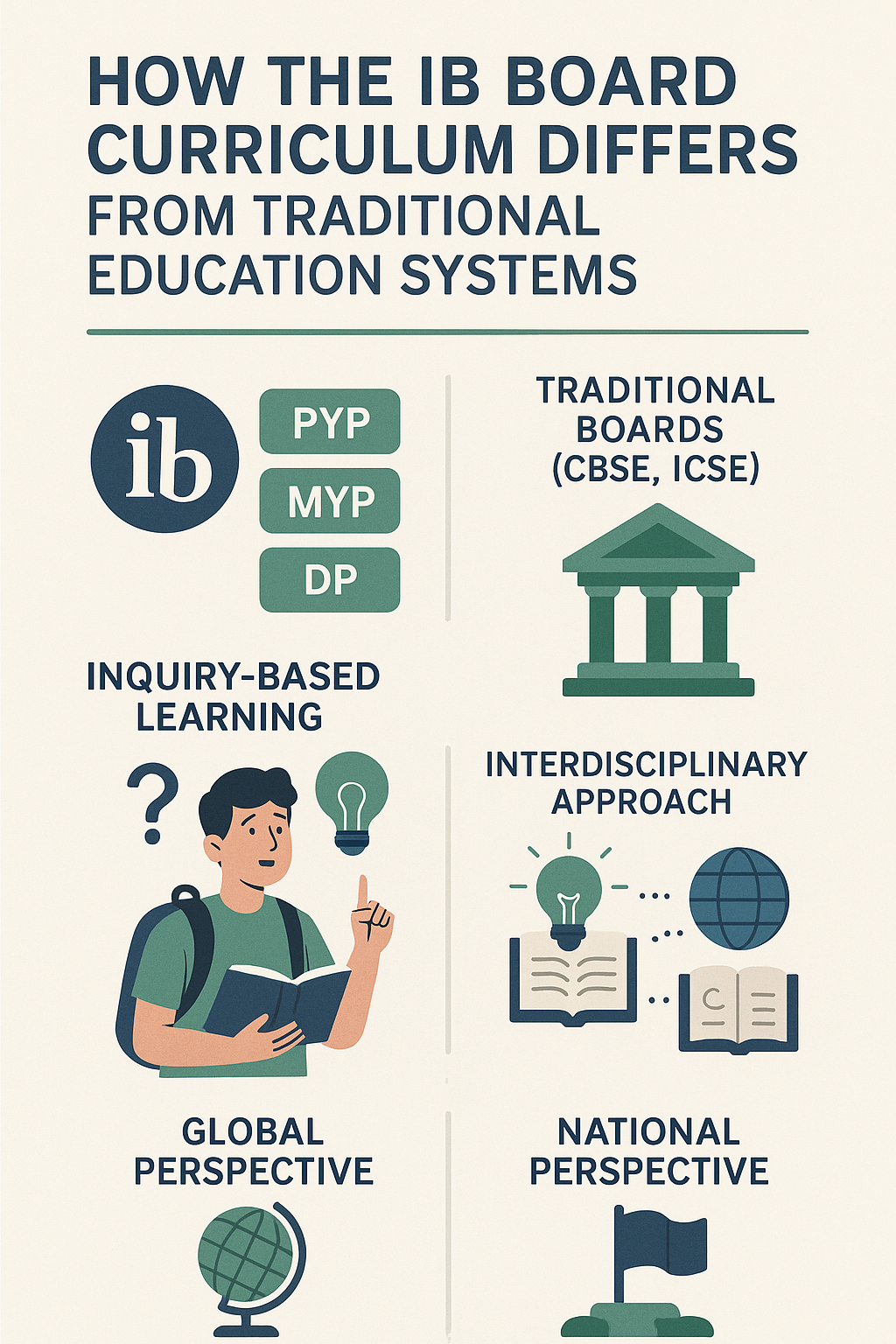
Explore how the IB board curriculum differs from traditional education systems like CBSE and ICSE, and understand IB...
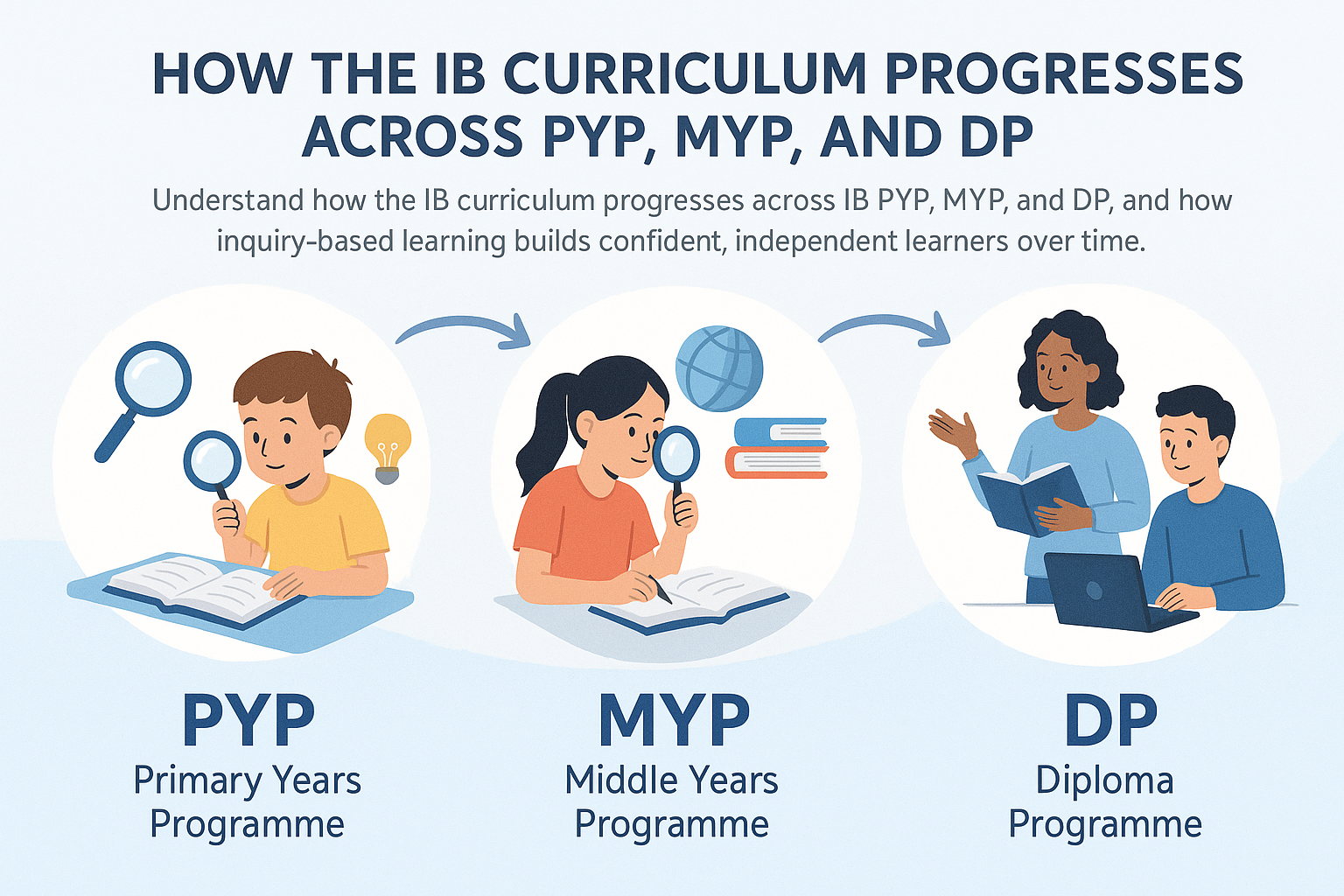
Understand how the IB curriculum progresses across IB PYP, MYP, and DP, and how inquiry-based learning builds...
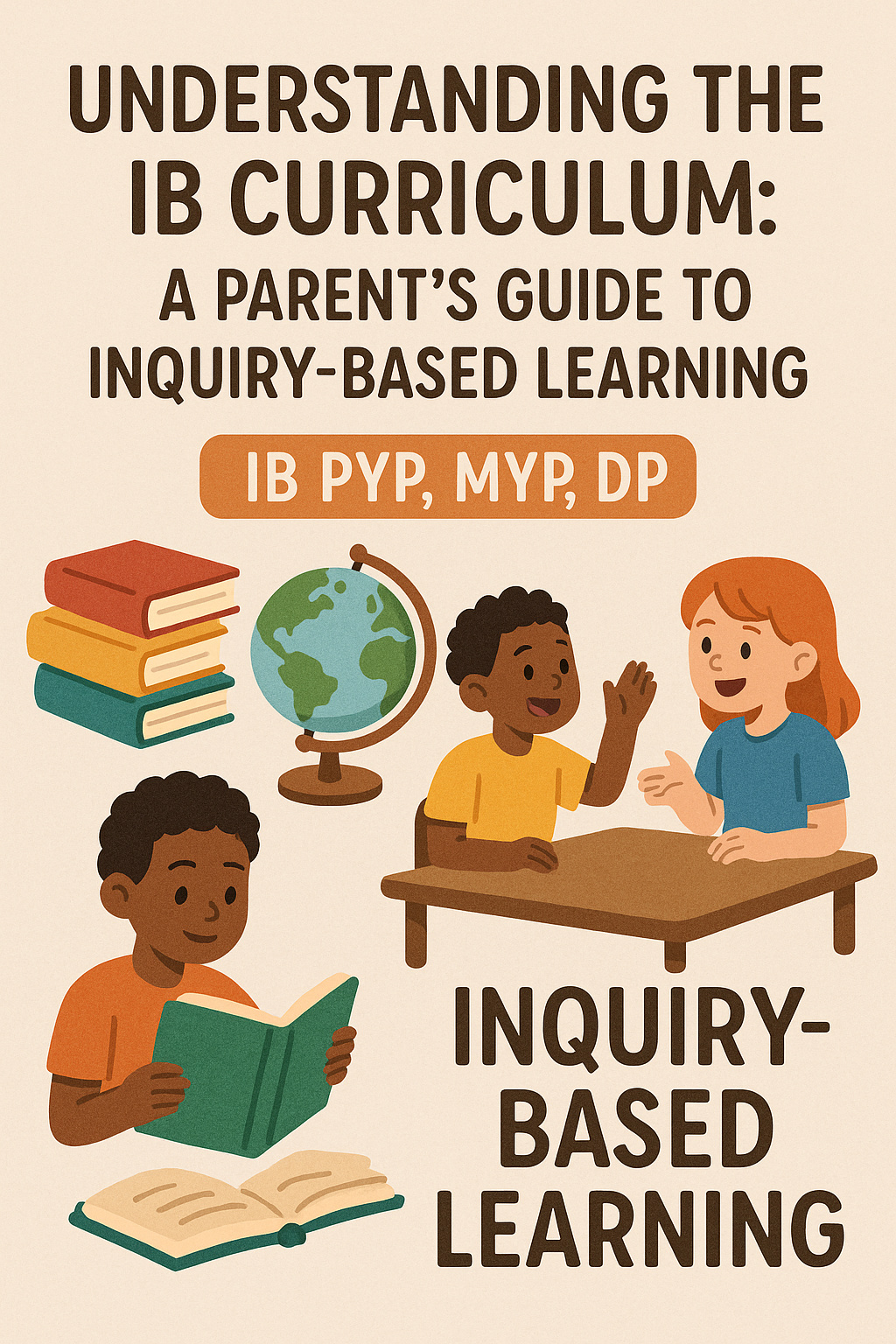
A parent friendly guide to understanding the IB curriculum, IB PYP, MYP, and DP, and how inquiry based learning...
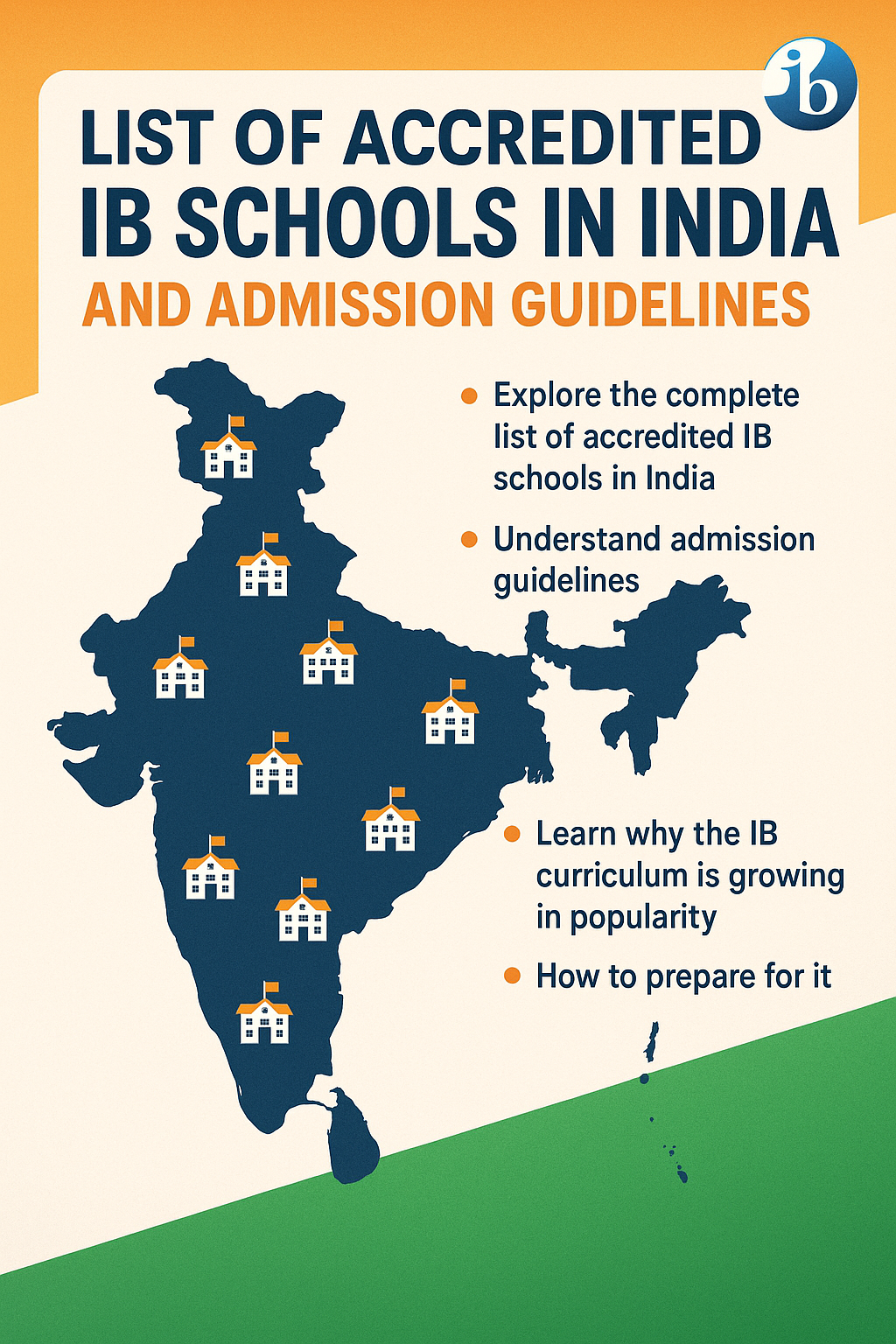
Explore the complete list of accredited IB schools in India and understand admission guidelines. Learn why the IB...

A complete guide for parents in Kolkata to understand the IB curriculum. Learn about PYP, MYP, IBDP stages,...

Discover the IB Diploma Programme curriculum, subject groups, core requirements, and benefits of IB. Learn how...

Thinking of joining the IB Programme? Learn about its rewards, challenges, and how AllRounder.ai can help you...

Discover the IB PYP curriculum framework, key learning areas, transdisciplinary themes, and how it nurtures lifelong...

Explore the IB syllabus structure, subject groups, and core components like TOK, CAS, and EE. A complete guide to IB...

Discover how the IB curriculum prepares students for Ivy League and top global universities. Explore skills,...

Explore how to choose IB subjects wisely. Learn about IB subject groups, HL vs SL, and combinations aligned with...

Understand the 10 IB Learner Profile attributes and why they matter in shaping global, future-ready students.

A detailed comparison of IB, CBSE, and ICSE boards. Learn about curriculum, teaching methods, and which board best...

Discover the IB Board – its global recognition, programs, and unique education philosophy.
Resources
-
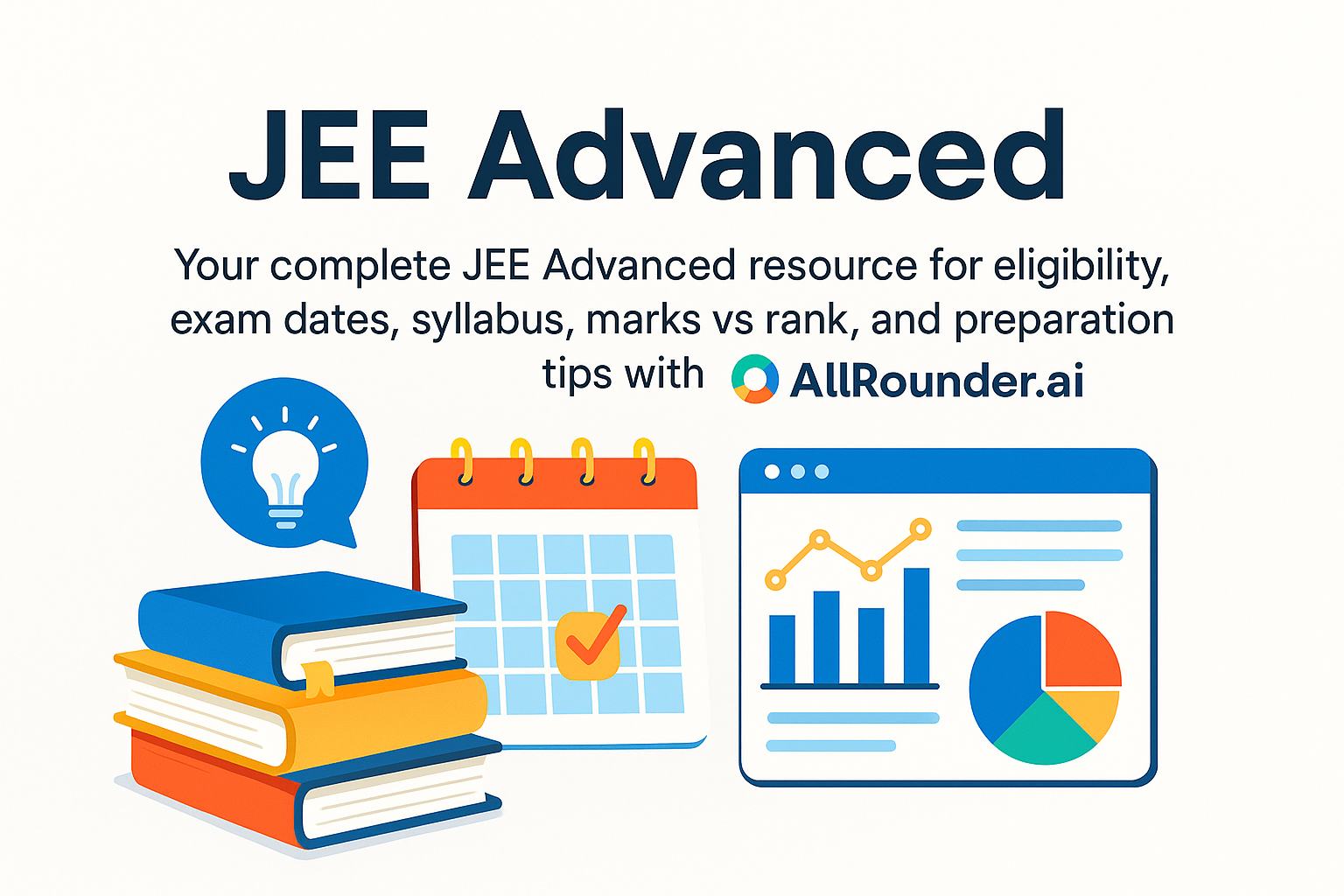
Your complete JEE Advanced resource for eligibility, exam dates, syllabus, marks vs rank, and...
-
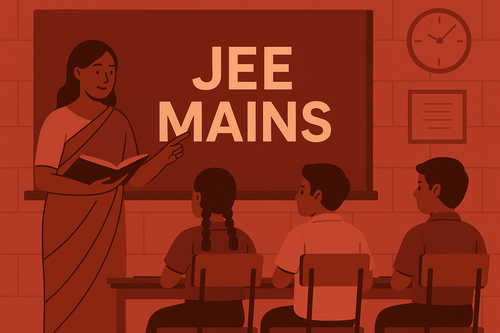
Understand the entire JEE Main process, from application and eligibility rules to the exam...
-

Explore the IB Board – a global curriculum emphasizing holistic, student-centered learning...
-

Learn about CBSE – India’s national school board offering a standardized curriculum, NCERT...
-

Explore everything about the ICSE board – its curriculum, subjects, exam format, and academic...
